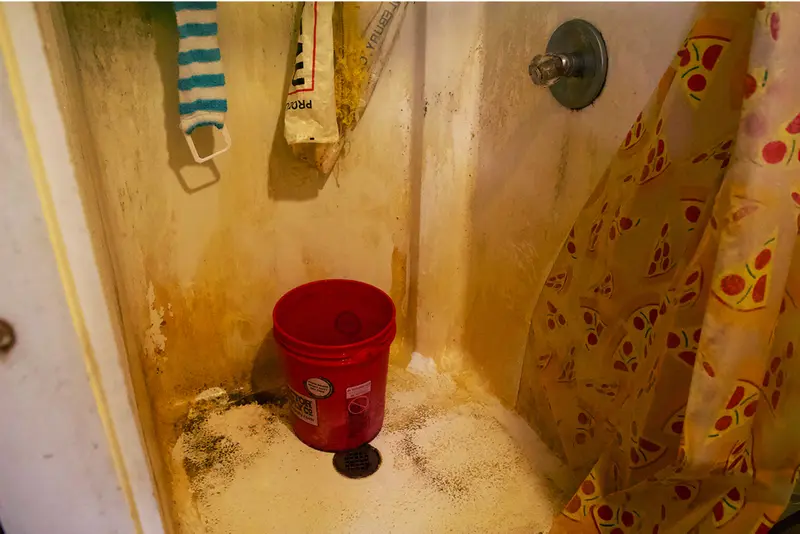[ad_1]
Minnesota Attorney General Keith Ellison’s lawsuit last month against a large dairy farm over alleged labor abuses, including millions of dollars in unpaid wages, was unusual in more than one way. It was his office’s first wage theft lawsuit against a dairy farm. And it put a spotlight on another issue that’s widespread but rarely addressed: substandard housing for immigrant dairy workers.
According to the attorney general’s complaint, workers at Evergreen Acres Dairy lived in “squalid” conditions, including in converted barns and a garage, that did “not meet Minnesota’s standards for habitability.” Several living spaces lacked heat. There was no toilet in one barn where workers lived. Photos included in the complaint show bathroom and bedroom walls covered in mold, disconnected sink pipes and cockroach infestations.
While the lawsuit targeted a single farm operation outside the Twin Cities, the reality is that substandard housing is widespread on dairy farms across the country. That’s because state and federal laws meant to ensure adequate housing for agricultural workers often exclude those on dairy farms. As a result, employer-provided housing for dairy workers rarely, if ever, gets inspected, certified or even tracked by any government agency.
Over the past year, ProPublica has reported on conditions for undocumented immigrants on dairy farms in Wisconsin, which is home to thousands of mostly small farms. We’ve seen and been told by workers about housing there that appears to be in even worse shape than what was depicted in the lawsuit. We’ve also talked to workers, attorneys, advocates and researchers in other states, including New York, Vermont and Michigan, who say workers there live in run-down, overcrowded, unsafe and unsanitary housing.
Last year, for example, we reported on the death of an 8-year-old Nicaraguan boy on a farm near Madison, Wisconsin, and noted that the boy lived with his father above a milking parlor, the barn where cows are milked day and night. (In a sworn deposition, the farm owners said workers only stayed in the rooms above the parlor between shifts or when the weather was bad. More than a half-dozen former workers and visitors to the farm told us the boy, his father and other workers lived there.)
Credit:
Minnesota Attorney General’s Office
Less than an hour away, we visited another farm where more than a half-dozen workers lived in a large, rundown house. Black mold covered the bathroom ceiling and walls. Thick electric cables lay exposed on the hallway between bedrooms. The kitchen ceiling was crumbling.
At other homes, we’ve seen makeshift walls, exposed insulation and kitchens that lack stoves and other appliances. Workers sometimes use space heaters because their homes don’t have functioning heating systems — a significant problem in Wisconsin’s winter.
One worker said he was assigned a closet that was barely large enough for a twin-size mattress. He said he slept there for months.
“They said I’d be there for 15 days, but four months passed,” said the worker, who spoke on the condition of anonymity because he still works on a farm and fears losing his job. “It got very cold in the winter because the apartment had a broken window.”
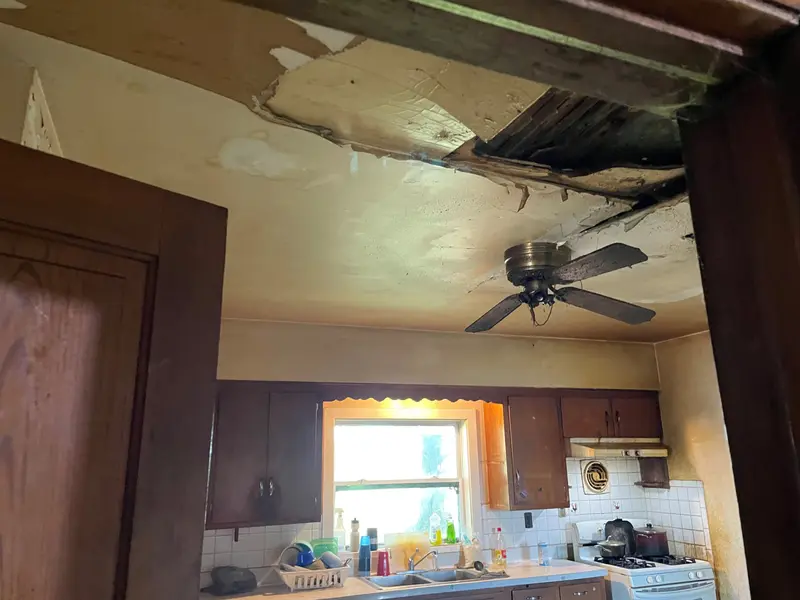
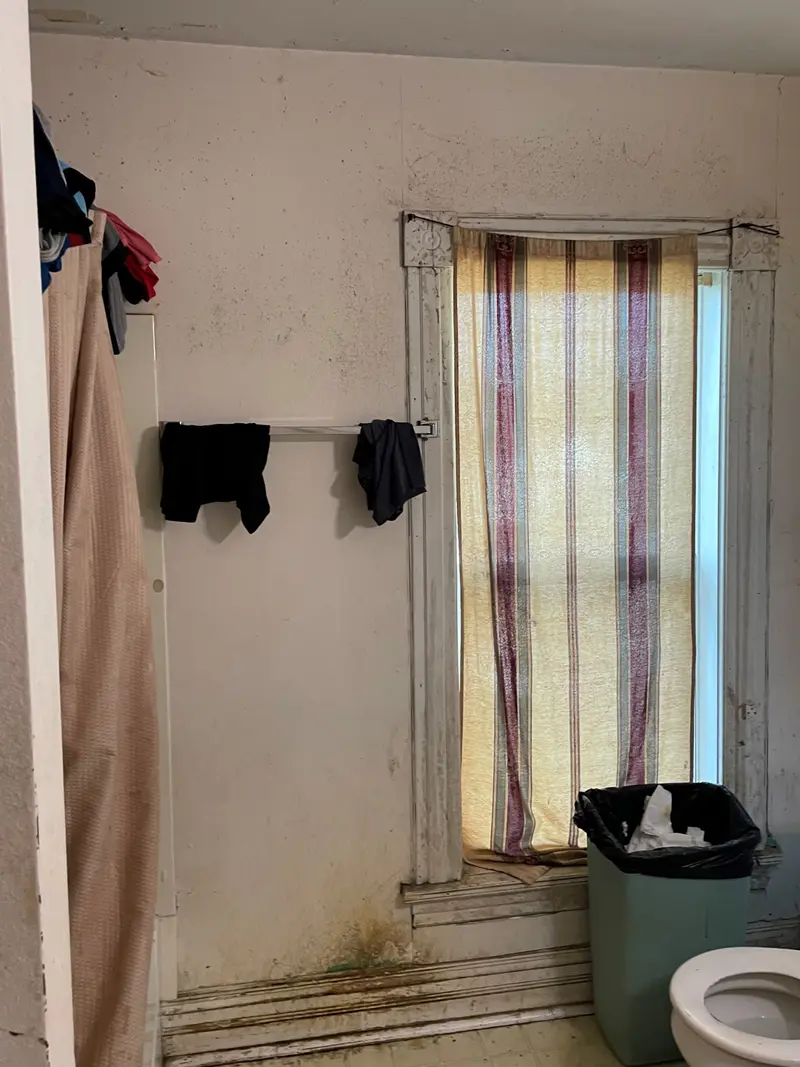
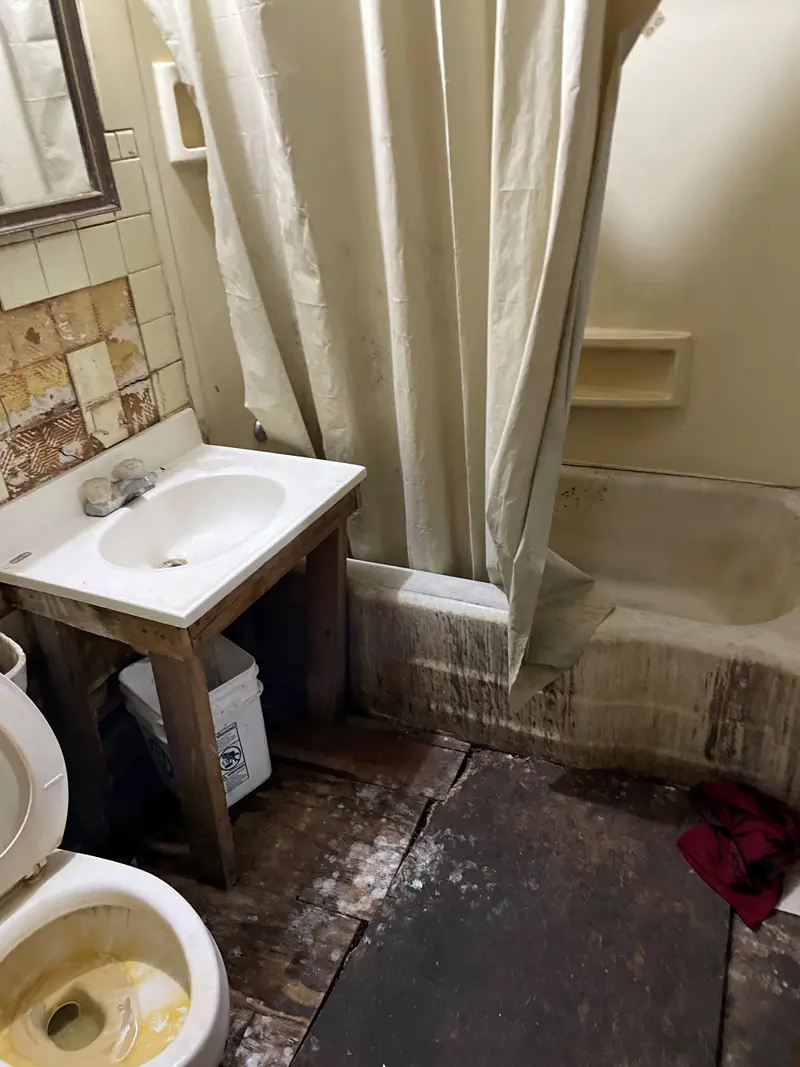
Credit:
Melissa Sanchez/ProPublica
Federal laws meant to protect migrant and seasonal agricultural workers establish some basic housing standards, such as an adequate water supply, toilets and limits on how close sleeping quarters can be to livestock.
But those federal protections don’t generally apply to dairy workers because cows are milked year-round, unlike other agricultural jobs such as picking apples, which are temporary or seasonal.
States also can regulate housing for agricultural workers, though not all states conduct regular inspections.
Again, dairy worker housing is exempt from state scrutiny because the work is year-round.
Wisconsin’s migrant labor law only applies to agricultural workers whose permanent homes are elsewhere but work in the state for 10 months a year or less. As a result, dairy workers are excluded.
José Martínez, who chairs the Governor’s Council on Migrant Labor in Wisconsin, said ProPublica’s reporting has “shed light on the need for regulation and oversight” for dairy work conditions, including housing. He said the council will discuss whether to recommend that Gov. Tony Evers support legislation to expand the state’s migrant labor law to cover dairy workers.
The issue has gotten some attention in recent years in other states. Bridge Michigan has reported on housing with faulty electrical wiring and “animal feces in an air vent, a dead rooster in the basement and a nest of rats gnawing at the insulation in the bathroom.” Vermont Public toured one worker’s home above a dairy barn, where a toilet sometimes leaked into the kitchen area and scalding water came out of the bare pipe he used to take showers. And in New York, the Times Union has reported on soft, wet, spongy floors, bedbugs and even skunks living under worker housing.
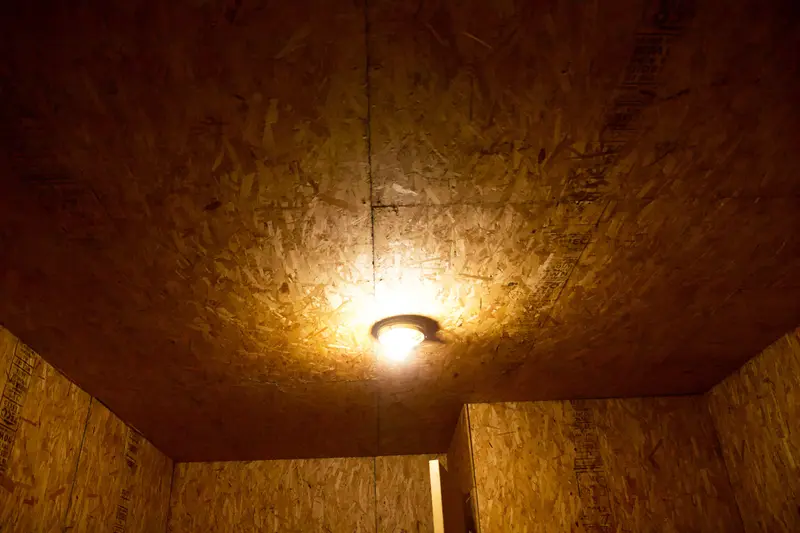
Credit:
Elodie Reed/Vermont Public
In theory, workers could file complaints about their housing with local public health or building departments. In some cases, they could sue their employers under state landlord-tenant laws. But advocates say complaining or filing a lawsuit isn’t a realistic option for undocumented immigrant workers who fear getting fired, evicted and deported.
“The fear of losing their housing or losing their employment or both — it’s a real issue,” said Griselt Andrade, the lead attorney at the Agricultural Worker Project of the nonprofit Southern Minnesota Regional Legal Services. “Sometimes they just prefer to endure those conditions and to work.”
That’s what made Ellison’s lawsuit so unusual. Many of the workers at Evergreen Acres were undocumented immigrants from an indigenous community in the Mexican state of Oaxaca whose primary language is Zapotec, according to the lawsuit.
(A spokesperson for the Wisconsin attorney general’s office said lawyers there were unaware of any lawsuits related to substandard housing for farmworkers or similar cases in the state.)
Katherine Kelly, an attorney who manages the civil rights division in Ellison’s office, said the attorney general got involved after workers complained to a local Latino advocacy group about having their wages docked and, in some cases, not getting paid at all. During the investigation, many workers spoke to the office about housing conditions.
The lawsuit against Evergreen Acres and its owners relies on the state’s broad landlord-tenant protections to make the substandard housing allegations. Under Minnesota law, workers who are provided housing in exchange for their labor can be considered tenants; the laws aren’t so broad in many other states, making it hard to classify workers as tenants without evidence they paid rent. In the Evergreen Acres case, the lawsuit notes that the farm also deducted rent from workers’ wages, which makes the workers more like traditional tenants.
The farm “did not keep the premises in reasonable repair during the term of the lease,” according to the lawsuit.
Courtney Blanchard, an attorney for Evergreen Acres, declined to comment, citing the pending litigation. The farm and farm owners have not yet filed a response to the complaint.
Andrade said she is grateful that the lawsuit has shone a spotlight on substandard housing conditions for dairy workers.
“It’s widespread,” she said. “And it’s not just in certain areas. It’s throughout the state.”
[ad_2]
#Law #Doesnt #Protect #Immigrant #Dairy #Workers #Substandard #Housing #ProPublica

